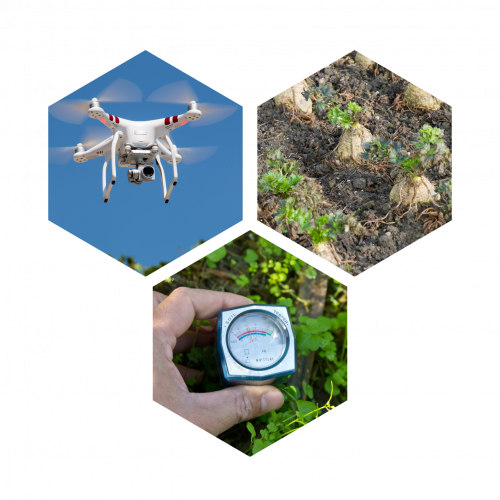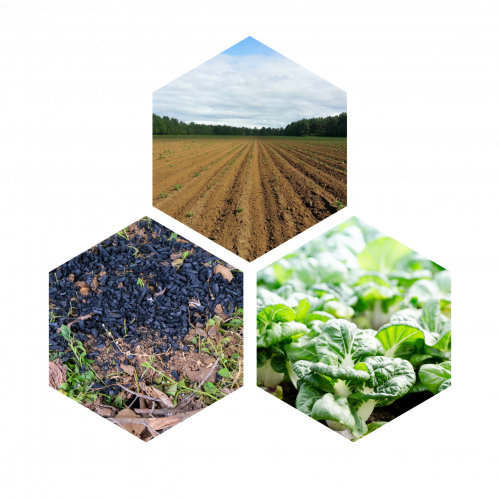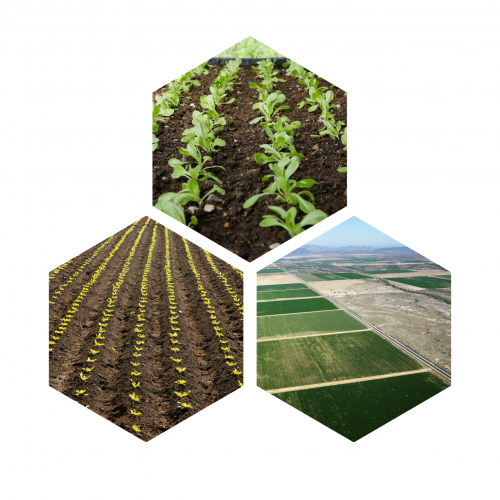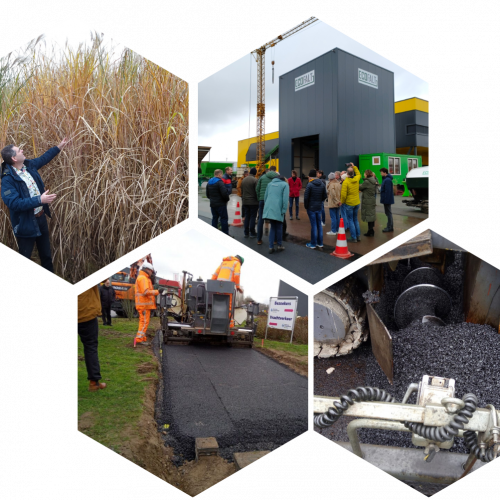Exploring the potential of biochar
A collaborative trial in Enschede
In collaboration with the Usseler Es farm, the municipality of Enschede and the ITC faculty of the University of Twente, a groundbreaking experiment is currently being conducted to investigate the effects of biochar on soil quality.
Biochar, a carbon-rich material derived from biomass, has the potential to improve soil fertility, increase water retention and reduce the need for chemical fertilisers, thus contributing to sustainable agricultural practices.




Study design: discovering the benefits of biochar
This research initiative focuses on evaluating the effectiveness of biochar in improving soil water retention and reducing drought stress in crops. The study has several key components:
- Assessment of soil water-holding capacity: Researchers will investigate how biochar affects the soil’s ability to hold water at different depths.
- Assessment of crop drought resistance: Drone and field camera images will be used to analyse the effect of biochar on crop drought resistance. Two crops with different root structures, red cabbage and celeriac, will be grown in soils treated with and without biochar.
- Comparing the plants’ responses: By observing plants with deep and superficial root structures, the aim is to determine whether biochar has a different effect depending on root depth.
Experimental design: Monitoring and analysis
The experimental setup involves equipping each vegetable plot with a series of soil sensors at four different depths to monitor moisture levels. In addition, field cameras equipped with thermal and infrared sensors will monitor the growth and health of the plants throughout the growing season. Satellite and drone imagery will provide detailed insights into drought stress patterns and plant development.
Cultivation process: The preparations
Soil preparation includes flail mowing to reduce higher storage costs and fragmentation, followed by solid manure application. Eco-ploughing, a method that ploughs less deeply than conventional ploughing, will be used to work the soil to a depth of about 15 cm. This gentle cultivation is expected to start in early March to ensure optimum conditions for the subsequent application of biochar.
Looking to the future: towards sustainable agriculture
As the trial progresses, ongoing monitoring and analysis will provide valuable insights into the effectiveness of biochar in improving soil quality and crop resilience. The results will not only inform farming practices in Enschede, but also contribute to the wider discussion on sustainable farming strategies.
Stay tuned as we continue to explore the potential of biochar to revolutionise agricultural practices and promote environmental awareness in our communities.
